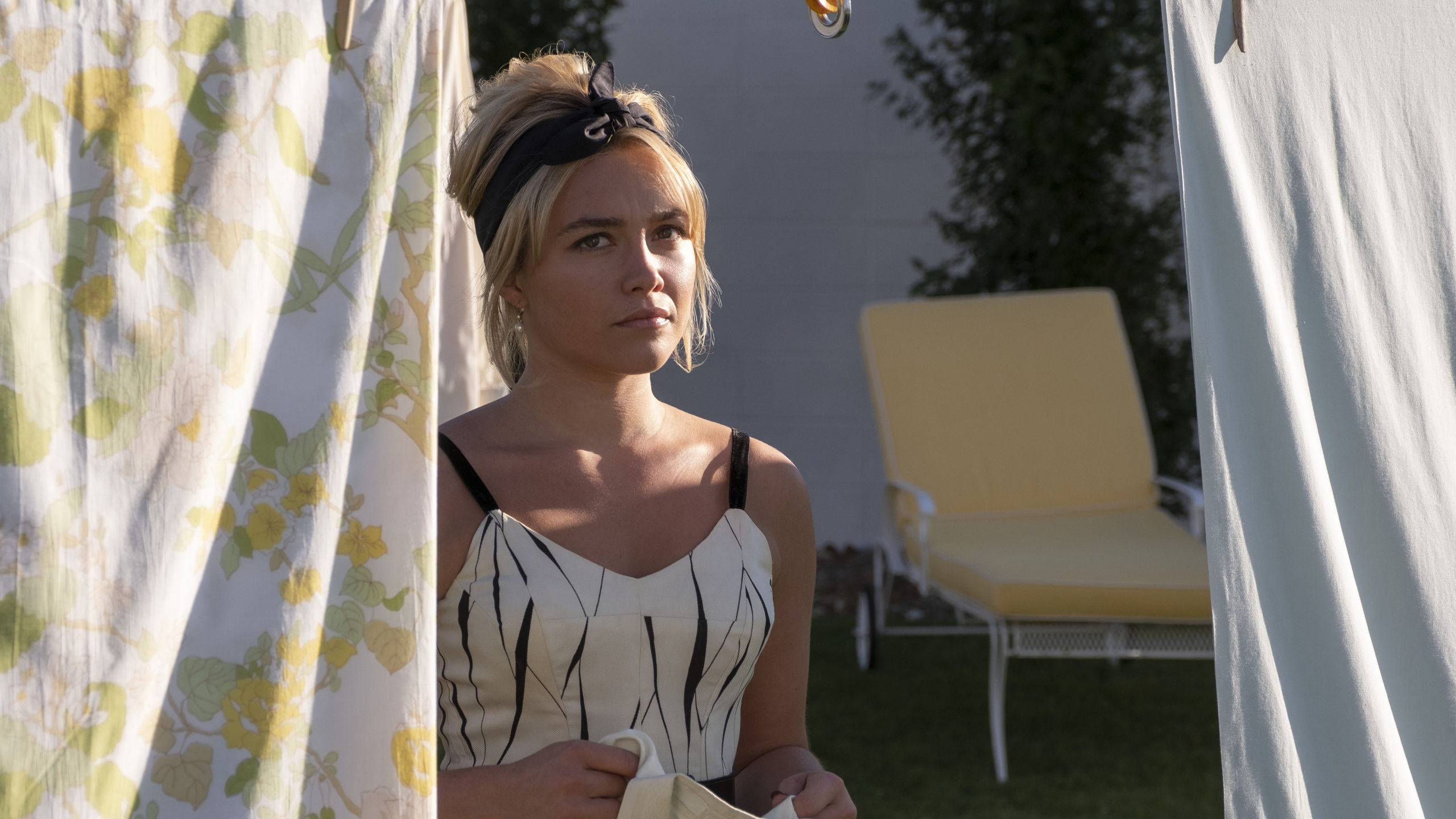
Social horror is supposed to be revelatory. Good social horror will plunge a knife deep inwards as reflections of our societies, our failures, ineptitudes, and biases. Instead, Don’t Worry Darling would like us to escape to a fantasy world in which white women are doubly and newly oppressed by the standards of suburbia that have been around since the birth of a sick, white Americana. The directing and writing live in their own bubble, believing poignant critiques of picture-perfect middle-class societies such as Get Out and The Stepford Wives don’t exist and the idea that maybe, just maybe, forcing women into domestic roles and continually manipulating and gaslighting them is a bad thing to do!
The third act made the first two emptier than Harry Styles’s acting opportunities (after his performance in this, at least), proving the entire premise to be too weak to uphold the most basic of twists. The behind-the-scenes drama becomes all the more silly when seeing what an empty film it was all for.
This is Katie Silberman and Olivia Wilde’s second collaboration, the first being Booksmart. I previously credited the two heavily for creating a self-aware, humorously ironic and relatable movie about being an overachieving high school graduate. But Don’t Worry Darling’s shallow white feminist writing and lackadaisical directing have caused me to reconsider the entirety of Booksmart. It now seems more likely that calling a “Malala” was intended to portray normal behavior for a politically-active teenager, not a mockery of white feminism.
Similar to Alex Garland’s work in Men earlier this year, Wilde supplies visuals on visuals in an attempt to get her point across. The shots of splattered blood, irises of eyes, and sickly ballerinas had me rolling my eyes not because they were objectively bad, but because there was absolutely no reason for them to be there, no new or interesting ideas they were supporting. The entire film was tonally inconsistent, a cheery satire of the 50’s one second, and some dark social thriller the next; the placement of the strange visuals disjointed these half-baked ideas, preventing anything from being paced effectively or interestingly.
You can make bodies of men with the face of Rory Kinnear emerge out of every crevice imaginable forever, and it would not shock or interest me in the slightest with a narrative so empty. And Wilde can play as many cheerful oldies as she likes, but it will never be an effective way to involve the sickening nostalgia she aches to portray. You cannot reuse the plot of a pre-existing film and not do anything interesting or different to it.
Although Wilde falters greatly in the director’s chair, she dazzles on screen. Her cool-girl charm she’s been beloved for since Drinking Buddies has never wavered. Florence Pugh, as expected, is incredible. She does her trademark frown and you immediately fall in love with her; she was made for the silver screen. As was KiKi Layne, haunting the narrative, beckoning it to be more interesting. Anything captivating about the plot can be attributed to Layne’s onscreen presence, but the film instead decides a white woman is a better protagonist for a film dissecting white suburbia. One Direction boy Harry Styles is there too, and if there is anyone entirely out of place in this cast, it’s him. All of his serious lines are met with laughter from the audience; his attempt at acting falls flat. The rest of the cast is rounded out fairly well, but there is nothing exceptional enough to save such a doomed screenplay.
It feels as though Silberman wrote a screenplay so barren in interesting thought, and Wilde directed it without a clear understanding of what actually happens in it, so she splattered it with visuals and ideas that she thinks insinuate that something is bad about oppressive, misogynistic white suburbia without any grasp on the logic of the film, or a desire to say anything new or interesting about an already well-known idea.
The screenplay is riddled entirely with plot holes, silly aspects that can’t be credited to an unexplainable dystopia, rather, a deflated world with the aesthetic of an interesting idea, but nothing to actually make it interesting. Instead of crafting a third act that makes the audience reflect upon their own selves and societies, it uses a cop-out twist masquerading as a suburbian scare for the digital age – still, it’s nothing we haven’t seen before. I’ve seen better dystopian world-building in Free Guy.
Maybe put on some headphones and close your eyes, a la Chris Pine, instead of tuning in for this one.